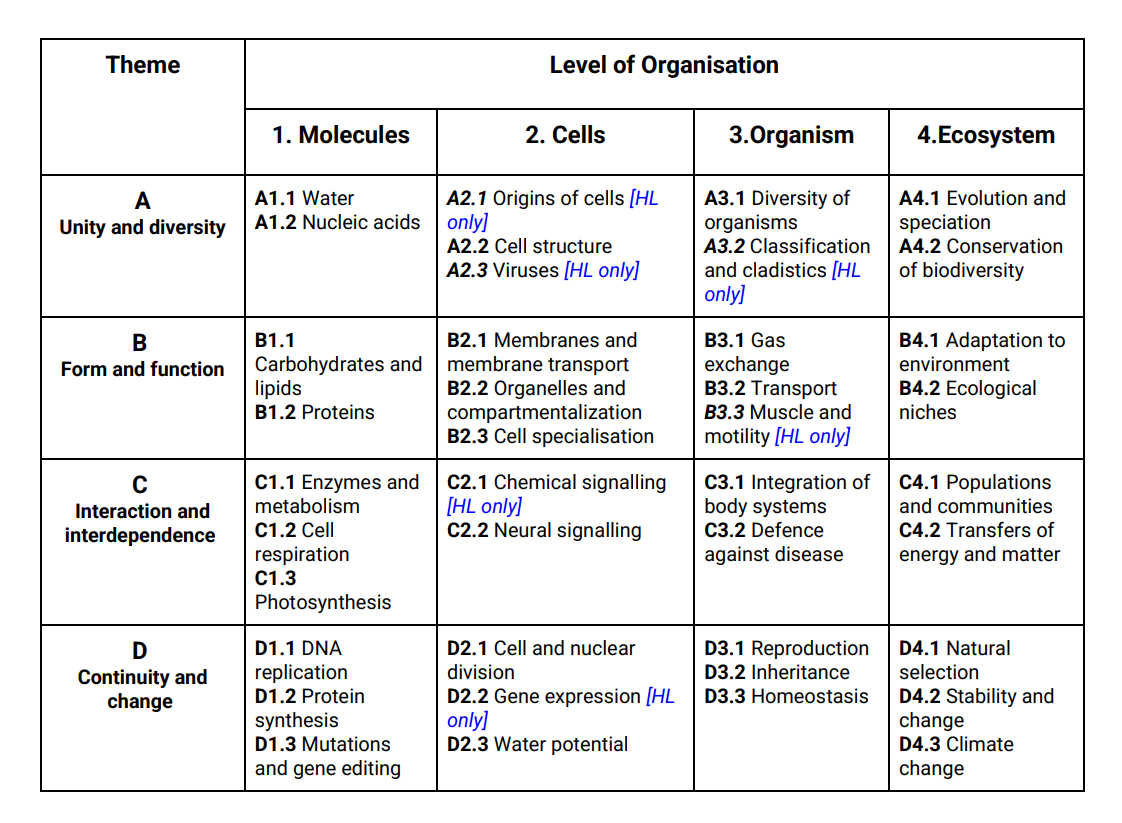Recent Changes in IB Science Subjects: A Comprehensive Overview of Content and Exam Style for First Assessments in 2025
By The Edge Learning Center
The International Baccalaureate (IB) is an educational organisation known for its unique, internationally recognized Diploma Programme. As part of its commitment to continuous improvement, the IB periodically revises its curriculum to ensure that it remains relevant and engaging for students worldwide. In this article, we will discuss the recent changes to the IB science subjects, with specific focus on content and exam style. We will provide a general overview of the modifications and then delve deeper into the changes within Physics, Chemistry, and Biology.
General Overview
The first assessments for the revised IB science subjects are scheduled for 2025, and these changes have been implemented to align with current research and best practices in the field of science education. The primary goals of the revisions are to foster deeper conceptual understanding, emphasise the connections between various scientific disciplines, and promote the development of scientific competencies that are applicable beyond the classroom.
One key change across all science subjects is the shift from a purely content-based approach to a focus on inquiry-based learning. The new curriculum encourages students to ask questions, design experiments, analyse data, and draw evidence-based conclusions. Additionally, the revised curriculum emphasises the importance of interdisciplinary thinking, encouraging students to recognize and appreciate the connections between different scientific disciplines.
Change in Assessment
External Assessment (80%)
While the current curriculum is composed of three external exams. The new structure of the Science subjects will result in students taking only two external exams.
- (36%) Paper 1: 1.5 hours for SL | 2 hours for HL
- Paper 1A : multiple choice questions
- Paper 1B: will contain data analysis questions allowing the students to be assessed on some of the experimental skills and techniques
- (44%) Paper 2: 1.5 hours for SL | 2.5 hours for HL
Another significant change is the removal of the option topics, which would be incorporated into either SL and HL syllabus accordingly.
Internal Assessment (IA) (20%)
Internal assessment (IA) has undergone the most significant restructuring. The IA now places greater emphasis on the process of scientific investigation, rather than solely on the final product. Students are now allowed to form small groups . Unlike the individual projects, this modification aims to develop students’ abilities to plan, carry out, evaluate scientific research and communicate with peers with similar interests in mind.Students will continue to submit an individual report with a maximum word count of 3,000 words.The revised criteria will place a greater emphasis on higher-order thinking skills with 50% of the marks allocated for Conclusion and Evaluation.
Physics
The revised Physics curriculum features several changes to both the content and exam style. The core material has been streamlined, with some topics being condensed or removed to reduce content overload and provide more time for inquiry-based learning. The new curriculum introduces a few novel topics, such as energy production and the environmental impact of energy sources, to ensure relevance and connection to real-world issues.
Chemistry
The changes in the Chemistry curriculum also aim to reduce content overload and provide more opportunities for inquiry-based learning. The revised syllabus incorporates contemporary topics such as green chemistry, materials science, and the role of chemistry in addressing global challenges.
Instead of listing the 11 main topics, there are two overarching concepts: structure and reactivity. With only 6 main topics and a total of 22 subtopics, the new syllabus has incorporated some of the content from the current four options (materials, biochemistry, energy and medicinal chemistry).
Biology
The Biology curriculum has undergone significant revisions to foster a deeper understanding of the underlying biological concepts and processes. The new syllabus integrates topics such as bioinformatics, systems biology, and the role of biology in addressing global challenges, ensuring that the content is relevant and engaging for students.
The curriculum is now “node” based and teachers have the freedom to, and are encouraged to teach based on their own organisations of the topics. In addition to the following table of topics, it is worth mentioning that the paper 2 of IB Biology is still consisting of data-based questions (section A) and extended response questions (section B).
If you are still uncertain how to prepare your IB Science, simply give us a ring or contact us today to schedule a trial lesson!
About The Edge
Established in 2008, The Edge Learning Center has grown into a premier one-stop provider of educational services for Grade 7 through Grade 12, targeting students who intend to pursue overseas education. Our three departments – Academic Tutoring, Test Preparation, and Admissions Consulting – offer a broad range of educational services spanning from SAT and IB Test Prep to colleges and boarding schools application counseling. The Edge Learning Center operates in multiple regions including Hong Kong, China, and Vietnam.






